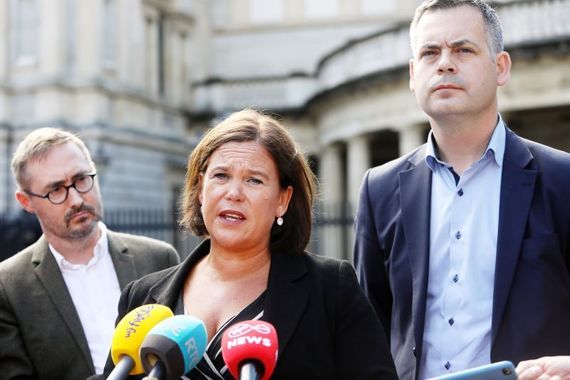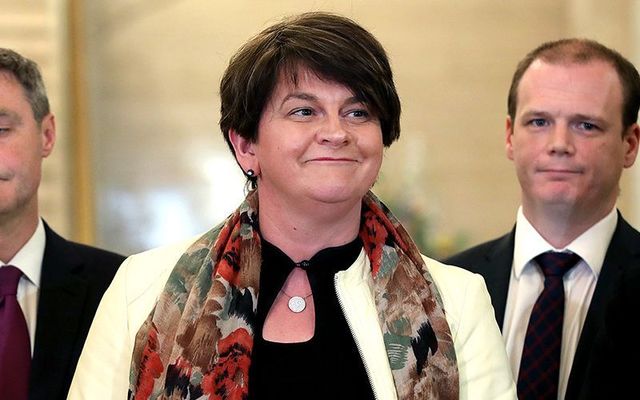More than half of people believe there should be referendums on Irish unity north and south of the border within the next five years – but that’s still not enough, according to prominent Democratic Unionist Party politicians.
The Republic’s general election exit poll raised the question of a border poll on unifying Ireland. The poll was commissioned by The Irish Times, RTÉ, TG4 and University College Dublin.
Some 57 percent said there should be referendums in the Republic and Northern Ireland within the next five years, a position that is supported by Sinn Fein. Forty per cent said that referendums should not be held and three percent had no response.
Read more: 80 percent of Irish voters want a united Ireland
Younger voters were more supportive of a border poll than older voters.
Democratic Unionist Party (DUP) leader and Northern Ireland First Minister Arlene Foster flatly rejected the need for a border poll. In a Tuesday morning tweet she said, "Irrespective of the view in Dublin or Brussels, a border poll can only be called by SoS [secretary of state] if it appears likely to secure a majority in Northern Ireland," she tweeted. "No such circumstances exist in Northern Ireland.”
DUP MP Jeffrey Donaldson described the number of people in favor of a border poll as surprisingly low.
He said, “I’m surprised the figure is as low as this in the Irish Republic, and I think that indicates that there is little consensus on the need for a border poll.”
DUP MP Sammy Wilson, who is his party’s Brexit Spokesperson, claimed the exit poll was “really none of their business” in the Republic.
Read more: Sinn Féin's success shows revisionist history is dead
He said, “Northern Ireland is part of the U.K., not part of Ireland, so the views of the Irish on a referendum in respect of another country are totally irrelevant.”
But Sinn Fein’s deputy leader Pearse Doherty, who topped the poll in Donegal which runs along a large part of the border, said the exit poll clearly showed both Fianna Fail and Fine Gael, who haven’t pushed for an early border poll, were “out of touch” regarding the demand for unity.

Sinn Féin's Eoin Ó Broin, Mary Lou McDonald and Pearse Doherty.
Doherty said, “We’ve been saying throughout this campaign and before the campaign that people are talking about Irish unity, people want to see Irish unity and particularly, they want the government to start planning for Irish unity.”
“They want to see a new Ireland – not 26 counties plus six stitched on – but a new Ireland.”
He believed it was time to start preparations now for a border referendum in five years.
Read more: Sinn Féin responds after PSNI reveals dissident republican threat
McDonald told the BBC on Monday night that “constitutional change is coming” and that the powers that be need to prepare for a referendum.
"The point has been conceded in the Good Friday Agreement by the British state -- the presence here is solely on the basis of consent," she said.
"That consent can only be tested in a unity referendum and we are going to have a unity referendum, and I want us to do it in an orderly, thoughtful, democratic and absolutely peaceful manner.
"Whoever is taoiseach when all of this plays out needs to make that case very plainly and very clearly to Boris Johnson."
Bookies have betting on a vote on Irish unity to pass before January 1, 2024, at 12/1, and before January 1, 2030, at 5/1.
Read more: Newlyweds “humbled” to be Northern Ireland’s first legally married same-sex couple




Comments